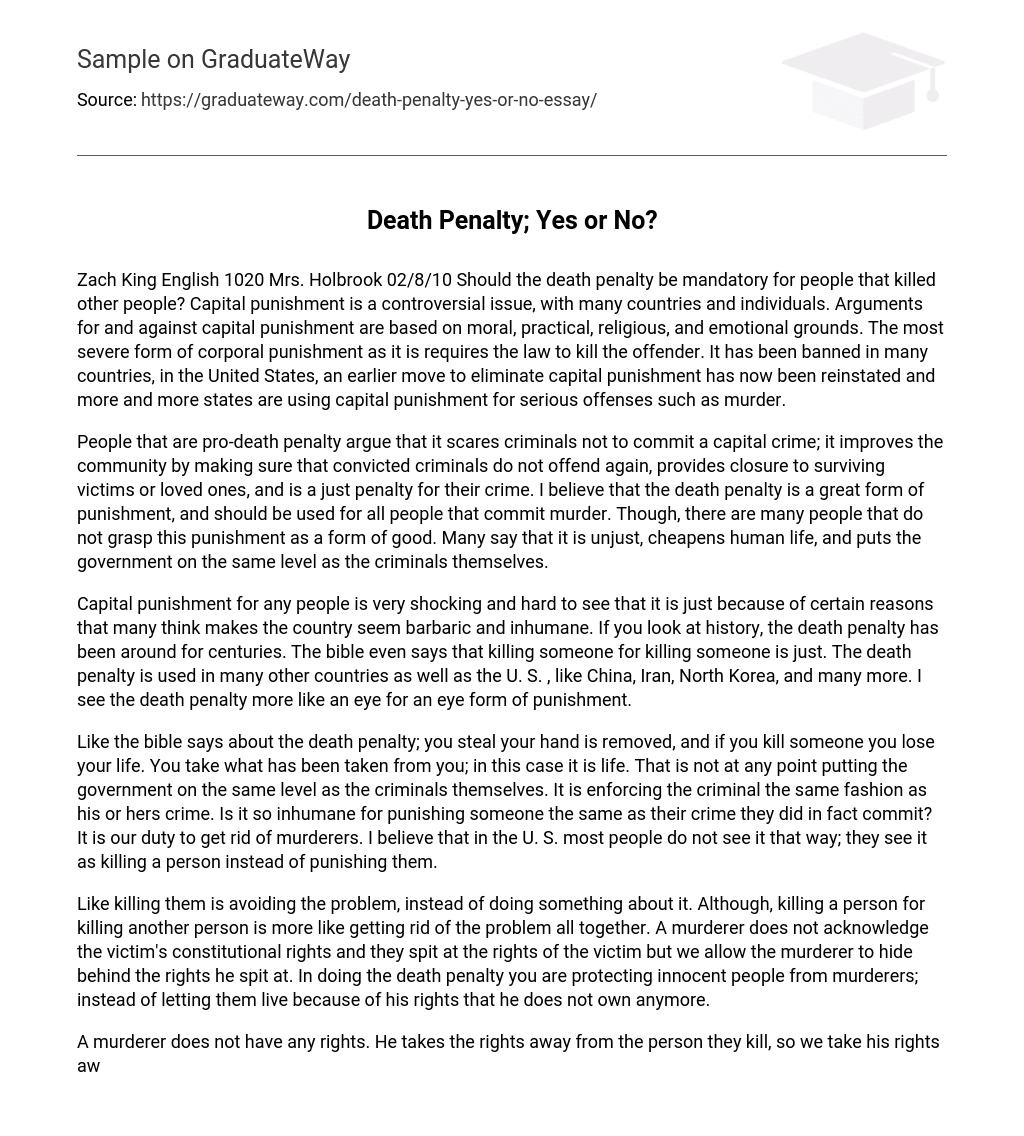Capital punishment is a highly contested issue that affects numerous countries and individuals. The debates surrounding it arise from moral, practical, religious, and emotional viewpoints. Being the harshest form of physical punishment, it involves the legal execution of the culprit. Although many nations have banned its implementation, there has been a revival in the United States as more states are choosing capital punishment for serious offenses such as murder.
There are individuals who both support and oppose the death penalty. Those in favor claim that it acts as a deterrent to crime, prevents repeat offenses, brings closure to victims and their families, and serves as a just punishment for serious crimes such as murder. Conversely, opponents argue that capital punishment is unjust, undermines the worth of human life, and links the government with criminals.
Capital punishment is a highly shocking and controversial practice carried out by different countries, such as the U.S., China, Iran, and North Korea. While some view it as a just response to heinous crimes, others consider it inhumane and barbaric. This form of punishment has existed for centuries and is even supported by religious texts like the Bible, which advocate for retributive justice through killing. Personally, I see the death penalty as a punitive measure that aims to establish equivalence, similar to the concept of “an eye for an eye.”
According to the bible, theft results in the loss of a hand as punishment, while murder leads to the loss of one’s life. This form of punishment follows the principle of “an eye for an eye,” where criminals face the same consequences as their crimes. It is important to note that this does not equate putting the government on par with criminals, but rather enforces a proportional punishment for each offense committed. Some argue that executing individuals for their crimes is cruel and goes against the purpose of punishment. Nevertheless, it remains our responsibility to eliminate murderers from society. Nonetheless, in the United States, many perceive this act as merely killing someone rather than administering rightful punishment.
Choosing to kill someone as a solution is essentially avoiding the problem rather than addressing it. However, punishing a person who has killed another by taking away their life can be viewed as completely eliminating the problem. A murderer does not respect the constitutional rights of their victim and by allowing the murderer to benefit from these same rights they disregarded, we are enabling them to escape punishment. By implementing the death penalty, we are safeguarding innocent individuals from murderers and prioritizing their protection over the rights that the criminals no longer possess.
Both the denial of rights for a murderer and the loss of rights experienced by their victim are comparable. This reciprocal action has been linked to an increase in murder rates during periods when executions are halted temporarily. Conversely, the use of capital punishment has been associated with a decline in homicides. The potential consequence of losing one’s own life would likely dissuade numerous criminals from engaging in murder. Ultimately, legislation’s perspective on the death penalty could potentially decrease violent killings by addressing both repeat offenders and first-time perpetrators.
The death penalty has the potential to decrease the national debt of the United States as it prevents murderers from depending on government assistance without any financial responsibilities such as paying bills. At present, the government allocates a significant amount of funds towards prison and jail facilities across the country, covering costs like inmate clothing, food, and maintenance. The rising incarceration rate presents capacity challenges for the U.S., making it impractical to construct additional prisons that would occupy valuable space needed for commercial and residential use.
The death penalty has two effects on the inmate population. First, it frees up space for non-death row prisoners when individuals are executed. Second, it acts as a deterrent to potential offenders who witness the punishment of losing their own lives. As a result, taxpayers’ money can be used more productively instead of providing food and shelter for those convicted of murder. The morality of the death penalty is subjective, but in my opinion, it contributes to improving America by eliminating dangerous individuals and enhancing the United States. Should someone receive capital punishment for taking another person’s life? My answer is an emphatic yes.





